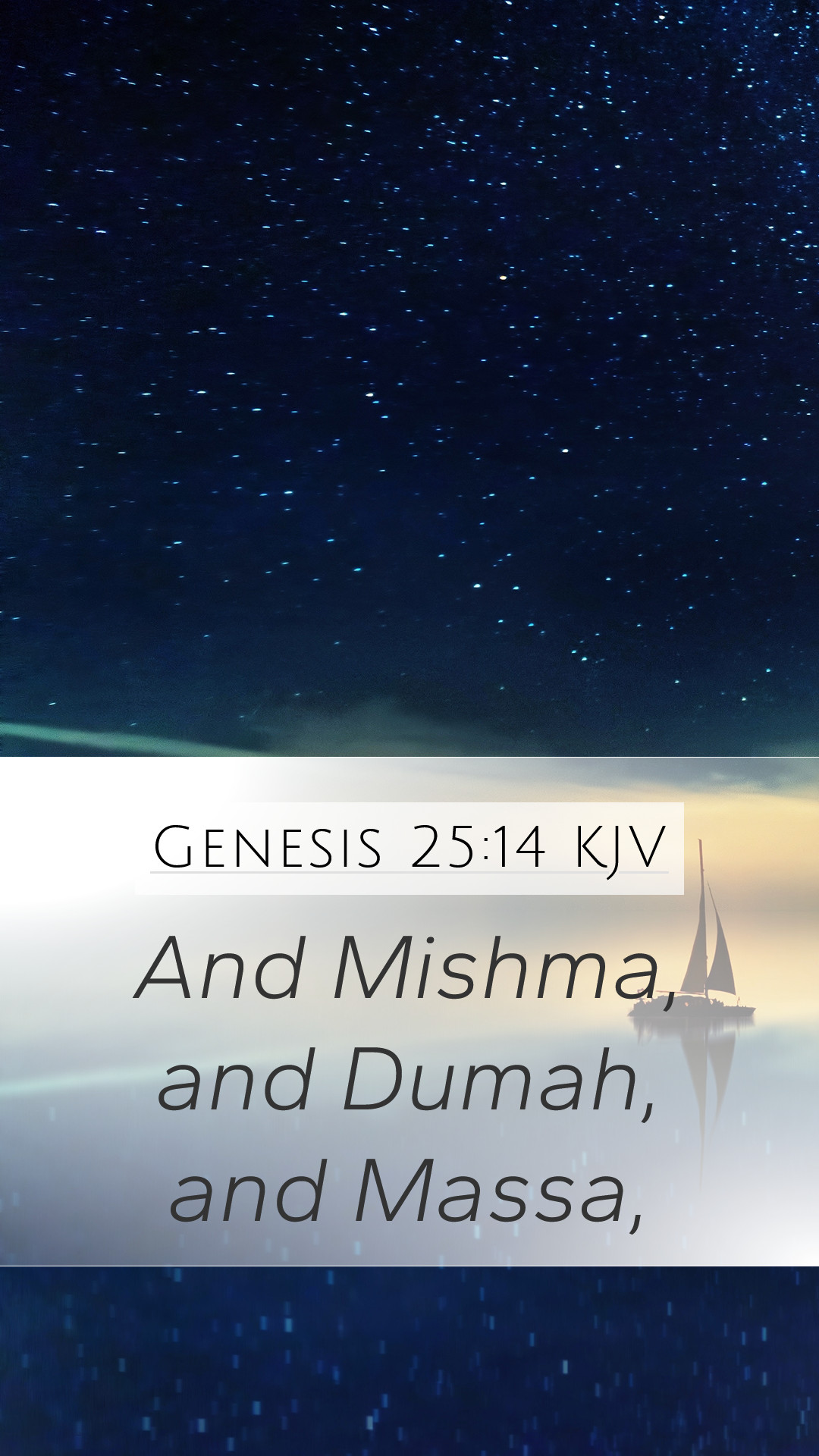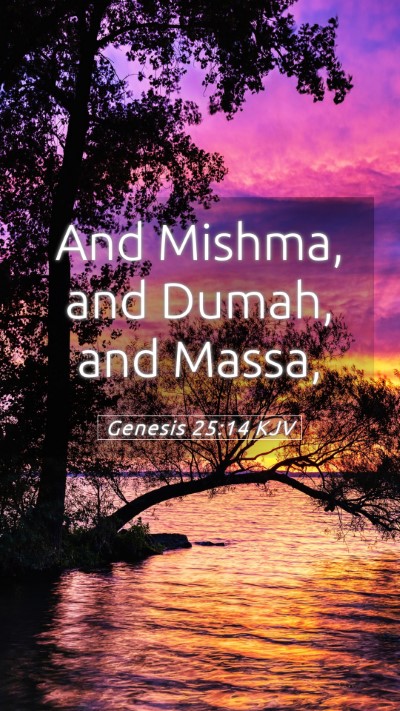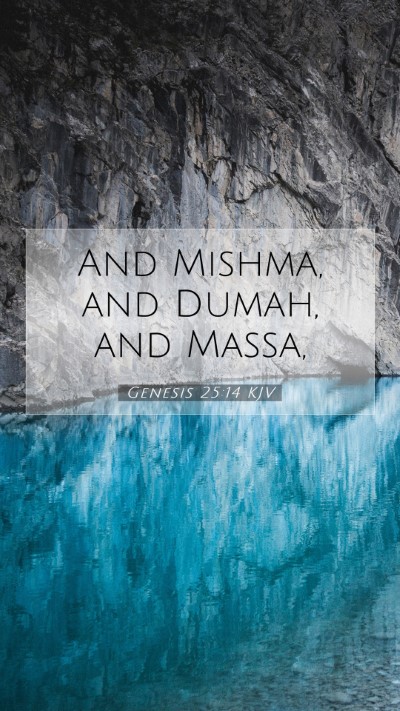Bible Verse Commentary on Genesis 25:14
Verse: Genesis 25:14: "And the sons of Midian; Ephah, and Epher, and Hanoch, and Abidah, and Eldah: all these were the children of Keturah."
Understanding Genesis 25:14
This verse provides insight into the descendants of Abraham through Keturah, revealing key aspects of genealogical significance in the biblical narrative. It underscores the importance of lineage and heritage, elements prevalent throughout Scripture.
Commentary Insights
- Matthew Henry: Henry emphasizes the notion that Abraham's marriage to Keturah after Sarah's death produced significant descendants who would become various tribes. He reflects on the blessings of God extending beyond Isaac to many nations, indicative of the fulfillment of God's promise to Abraham.
- Albert Barnes: Barnes explains that Keturah's children were part of God's extended blessings through Abraham. He notes that these descendants, while not central figures in the biblical narrative, contributed to the makeup of neighboring nations, indicating God's favor on Abraham's entire family.
- Adam Clarke: Clarke interprets this verse with a focus on the historical implications of Midian's descendants. He highlights that Midian is often associated with conflict against Israel, thus adding a layer of foreshadowing in the fabric of the biblical story where familial ties also lead to enmity.
Theological Reflections
Genesis 25:14 illustrates God's providential hand in orchestrating descendants that fulfill His covenant. Keturah not only bears children for Abraham but also enriches the genealogical tapestry of nations outlined in Scripture.
Biblical Exegesis and Context
To gain a deeper understanding of this verse, it's crucial to consider its historical context within the broader narrative of Genesis. This reflects God's continued blessings toward Abraham's family, suggesting that divine favor encompasses both Isaac and the children of Keturah, thus demonstrating God's abundant grace in establishing nations.
Application in Bible Study
The exploration of Genesis 25:14 within Bible study groups can illuminate how individuals see themselves as part of God's larger covenant family. It serves as a reminder that God's promises can manifest in unexpected ways and through unexpected people.
Key Themes and Lessons
- Inheritance of Blessings: The verse demonstrates how blessings can be shared among many, not just the primary heir.
- Complex Family Dynamics: The children of Keturah provide a complex picture of family that can lead to both unity and division in biblical narratives.
- Legacy Matters: Understanding the legacy we leave within our families can help in grasping our role in God’s story.
Cross References
- Genesis 16:15 - The birth of Ishmael through Hagar, highlighting Abraham's multiple descendants.
- Genesis 17:20 - God's promise regarding the descendants of Ishmael.
- Exodus 2:15-22 - The Midianites, descendants of Midian, are introduced in the context of Moses’ story.
Conclusion
In summary, Genesis 25:14 opens a window into the complexities of familial relationships in the biblical narrative, illustrating the breadth of God's promises. This verse holds significant implications for understanding Scripture, as it invites us to consider the diverse pathways through which God fulfills His covenants.
For further exploration: Engage with bible verse meanings, bible verse interpretations, and bible study insights to derive applicable lessons for daily life.


